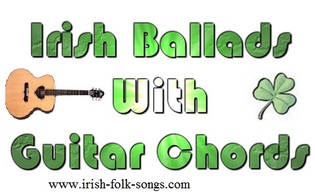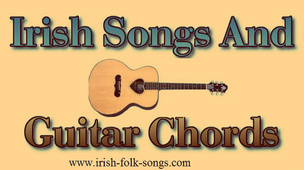Irish Folk Song Lyrics From U To Z
Irish Drinking Songs
Music plays an integral role in Irish culture, and traditional Irish drinking songs have been an important part of the country's musical heritage for centuries. These songs are deeply rooted in Irish history and have been passed down from generation to generation, becoming an essential part of Irish identity. The purpose of this thesis is to explore the origins, evolution, and significance of traditional Irish drinking songs.
Origins of Traditional Irish Drinking Songs
The origins of traditional Irish drinking songs can be traced back to ancient times when the Celts inhabited Ireland. These songs were an integral part of their social and cultural rituals, and they were often used to celebrate special occasions, such as weddings, harvests, and victories in battle. The Celts believed that music had the power to bring people together and create a sense of community, and drinking songs were an essential part of this communal experience.
With the arrival of Christianity in Ireland, many of the pagan traditions were replaced, but the importance of music and drinking songs remained. These songs were often sung in monasteries and churches, and they were used to tell stories and pass down oral history. As the centuries passed, Ireland experienced significant political and social changes, and traditional Irish drinking songs evolved to reflect these changes.
Evolution of Traditional Irish Drinking Songs
The evolution of traditional Irish drinking songs can be divided into three distinct periods: the medieval period, the 18th and 19th centuries, and the modern period.
During the medieval period, traditional Irish drinking songs were mainly sung in monasteries and churches, and they were often religious in nature. These songs were sung in Gaelic, the native language of Ireland, and they were accompanied by traditional instruments such as the harp, uilleann pipes, and bodhrán. The lyrics of these songs were often based on religious texts and were used to spread the teachings of the Catholic Church.
In the 18th and 19th centuries, Ireland experienced a period of great political and social upheaval, which had a significant impact on the country's music. The introduction of the Penal Laws by the British government led to the suppression of Irish culture and language, and traditional Irish drinking songs became a form of resistance against this oppression. These songs were often sung in secret, and they were used to express the frustrations and struggles of the Irish people.
During this period, Irish drinking songs also became more popular in pubs and other social gatherings. These songs were often sung in English, as the use of Gaelic was discouraged by the British authorities. The lyrics of these songs were often humorous and lighthearted, providing a temporary escape from the hardships of everyday life.
In the modern period, traditional Irish drinking songs have become a staple in Irish pubs and celebrations. While many of these songs are still deeply rooted in Irish history and culture, they have also evolved to reflect contemporary issues and concerns. Today, these songs are sung in both Gaelic and English, and they continue to bring people together in a spirit of camaraderie and celebration.
Significance of Traditional Irish Drinking Songs
Traditional Irish drinking songs hold a unique significance in Irish culture and identity. They represent a connection to Ireland's past and serve as a reminder of the struggles and triumphs of the Irish people. These songs also reflect the resilience and wit of the Irish, who have used music as a form of resistance against oppression and a way to maintain their cultural traditions.
Moreover, traditional Irish drinking songs have a strong sense of community and togetherness. In pubs and social gatherings, these songs bring people of all ages and backgrounds together, creating a sense of unity and belonging. They also serve as a way to pass down Irish history and traditions to future generations, ensuring that these songs will continue to be a vital part of Irish culture for years to come.
Conclusion
In conclusion, traditional Irish drinking songs have a rich and storied history that reflects the evolution of Irish culture and identity. From their origins in ancient Celtic rituals to their modern-day popularity in pubs and celebrations, these songs are an essential part of Irish heritage. They continue to be sung and cherished by the Irish people, providing a connection to their past and a sense of community in the present. As long as there are Irish people and Irish pubs, traditional Irish drinking songs will remain a treasured part of Irish culture.
Origins of Traditional Irish Drinking Songs
The origins of traditional Irish drinking songs can be traced back to ancient times when the Celts inhabited Ireland. These songs were an integral part of their social and cultural rituals, and they were often used to celebrate special occasions, such as weddings, harvests, and victories in battle. The Celts believed that music had the power to bring people together and create a sense of community, and drinking songs were an essential part of this communal experience.
With the arrival of Christianity in Ireland, many of the pagan traditions were replaced, but the importance of music and drinking songs remained. These songs were often sung in monasteries and churches, and they were used to tell stories and pass down oral history. As the centuries passed, Ireland experienced significant political and social changes, and traditional Irish drinking songs evolved to reflect these changes.
Evolution of Traditional Irish Drinking Songs
The evolution of traditional Irish drinking songs can be divided into three distinct periods: the medieval period, the 18th and 19th centuries, and the modern period.
During the medieval period, traditional Irish drinking songs were mainly sung in monasteries and churches, and they were often religious in nature. These songs were sung in Gaelic, the native language of Ireland, and they were accompanied by traditional instruments such as the harp, uilleann pipes, and bodhrán. The lyrics of these songs were often based on religious texts and were used to spread the teachings of the Catholic Church.
In the 18th and 19th centuries, Ireland experienced a period of great political and social upheaval, which had a significant impact on the country's music. The introduction of the Penal Laws by the British government led to the suppression of Irish culture and language, and traditional Irish drinking songs became a form of resistance against this oppression. These songs were often sung in secret, and they were used to express the frustrations and struggles of the Irish people.
During this period, Irish drinking songs also became more popular in pubs and other social gatherings. These songs were often sung in English, as the use of Gaelic was discouraged by the British authorities. The lyrics of these songs were often humorous and lighthearted, providing a temporary escape from the hardships of everyday life.
In the modern period, traditional Irish drinking songs have become a staple in Irish pubs and celebrations. While many of these songs are still deeply rooted in Irish history and culture, they have also evolved to reflect contemporary issues and concerns. Today, these songs are sung in both Gaelic and English, and they continue to bring people together in a spirit of camaraderie and celebration.
Significance of Traditional Irish Drinking Songs
Traditional Irish drinking songs hold a unique significance in Irish culture and identity. They represent a connection to Ireland's past and serve as a reminder of the struggles and triumphs of the Irish people. These songs also reflect the resilience and wit of the Irish, who have used music as a form of resistance against oppression and a way to maintain their cultural traditions.
Moreover, traditional Irish drinking songs have a strong sense of community and togetherness. In pubs and social gatherings, these songs bring people of all ages and backgrounds together, creating a sense of unity and belonging. They also serve as a way to pass down Irish history and traditions to future generations, ensuring that these songs will continue to be a vital part of Irish culture for years to come.
Conclusion
In conclusion, traditional Irish drinking songs have a rich and storied history that reflects the evolution of Irish culture and identity. From their origins in ancient Celtic rituals to their modern-day popularity in pubs and celebrations, these songs are an essential part of Irish heritage. They continue to be sung and cherished by the Irish people, providing a connection to their past and a sense of community in the present. As long as there are Irish people and Irish pubs, traditional Irish drinking songs will remain a treasured part of Irish culture.


